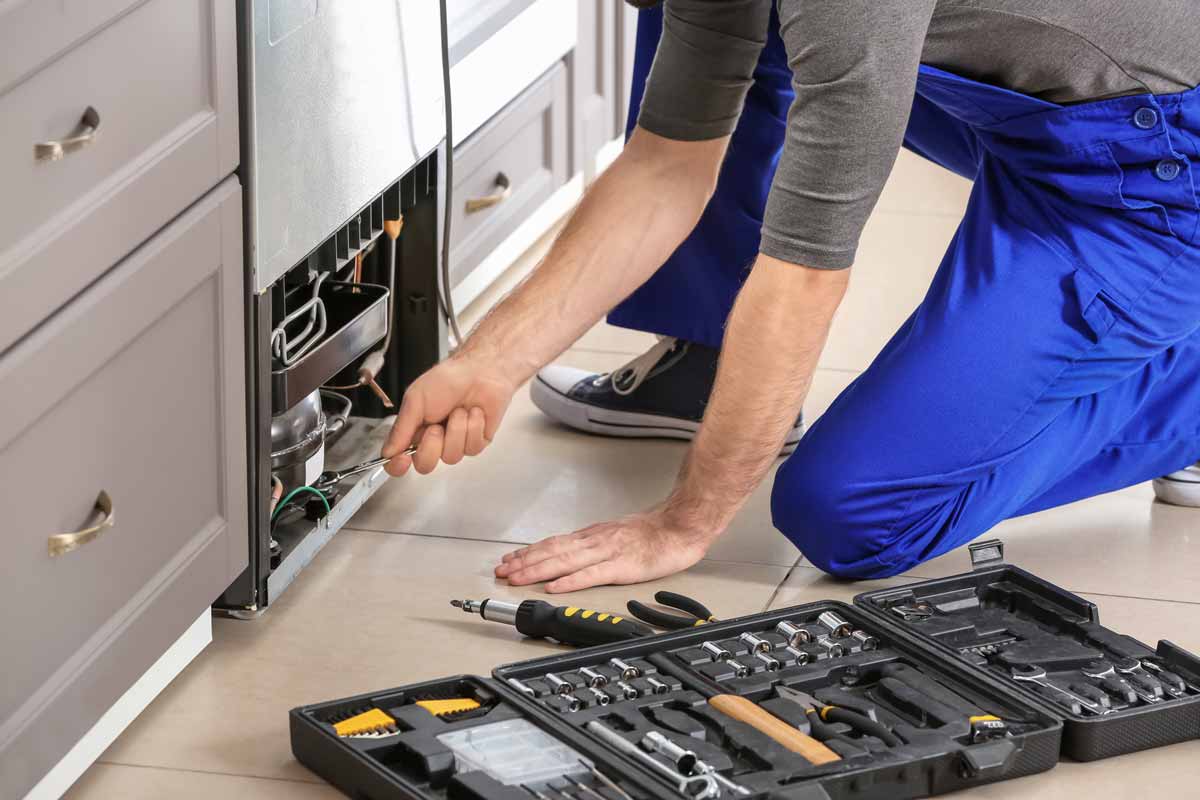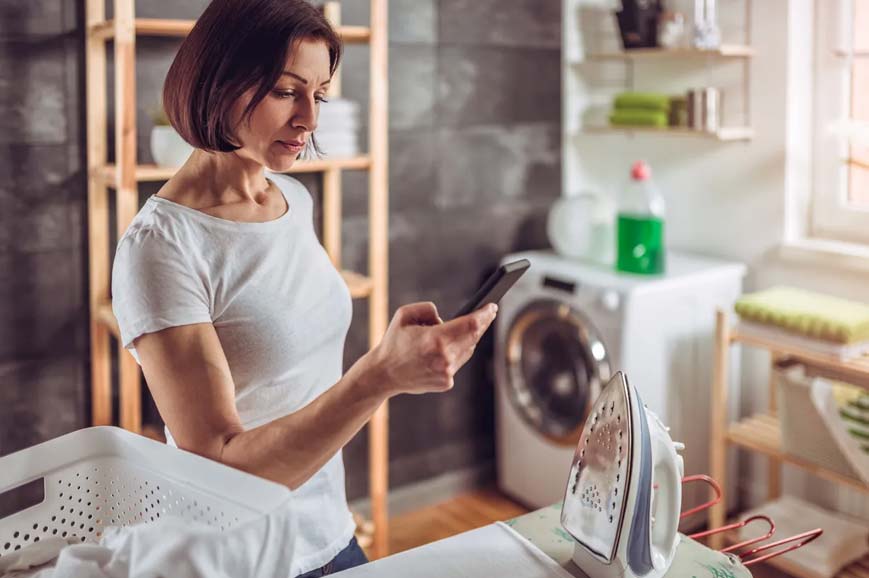The Ultimate Guide to Recognizing Home Appliance Repair in the house
When your fridge stops cooling down or your stove declines to heat, it can really feel overwhelming. Recognizing home appliance fixing in the house can save you money and time. You'll learn to acknowledge signs, utilize essential tools, and comply with a methodical troubleshooting process. But before you start, there are vital security preventative measures you need to take into consideration. What are one of the most typical troubles, and exactly how can you repair them? Allow's discover the fundamentals.
Typical Home Appliance Problems and Their Signs
When your devices start acting up, it's important to acknowledge the indications beforehand. Ignoring them can lead to bigger issues and expensive repairs. If your fridge isn't cooling down effectively, you could discover warm areas or condensation developing. This can show a falling short compressor or an obstructed vent.Your dishwasher may show troubles through unclean meals or unusual noises throughout cycles. If you hear grinding or clanking, it's time to investigate.A cleaning device that won't rotate or drain pipes can leave you with soggy laundry, suggesting a blocked drainpipe or a malfunctioning pump.Lastly, if your oven's temperature level appears off or it takes for life to pre-heat, you may be taking care of a faulty thermostat. By staying sharp to these symptoms, you can attend to concerns prior to they escalate into major fixings.
Essential Tools for Device Fixing
When you're tackling device fixings at home, having the right tools is important. Basic hand tools like screwdrivers and pliers will certainly aid you take apart and fix different devices, while electrical testing tools guarantee you're working securely with wiring. Allow's go over what you require to begin on your repair service journey.
Standard Hand Devices
Having the right tools is necessary for efficient device repair work in the house. Start with a reliable screwdriver set, including both flathead and Phillips kinds, as screws prevail in device setting up. Pliers are also important; they aid with gripping, twisting, and reducing wires or tiny components. A pair of needle-nose pliers can reach tight areas easily. You'll need a good adjustable wrench for tightening or loosening nuts and bolts. An energy knife is useful for puncturing product packaging or insulation. Lastly, don't forget a durable workbench or surface area to securely organize your devices and parts. With these basic hand tools, you'll be well-prepared to deal with most home appliance repairs that come your means.
Electrical Testing Instruments
Along with basic hand devices, electric testing tools play an important role in appliance repair. These tools aid you diagnose electrical concerns and assurance appliances function securely. A multimeter is vital; it measures voltage, present, and resistance, permitting you to determine issues quickly. A non-contact voltage tester is another essential, letting you identify real-time wires without making direct call, improving your safety and security. Clamp meters are excellent for determining current flow in cables without detaching them, saving you time and initiative. In addition, circuit testers can rapidly inspect if electrical outlets are operating properly. By utilizing these devices, you'll simplify your troubleshooting process and boost your repair work skills, making device maintenance a great deal much easier.
Step-by-Step Guide to Diagnosing Device Issues
When your device acts up, it can be aggravating, but identifying the issue does not need to be overwhelming. You'll find out to recognize common issues and use efficient fixing techniques. Let's stroll via the steps to get your device back in functioning order.
Common Appliance Problems

Repairing Methods Explained

Fixing Major Cooking Area Devices: A Closer Look
Have you ever before questioned just how to deal with common concerns with your kitchen area devices? Repairing major kitchen area home appliances like fridges, stoves, and dishwashing machines can be easier than you believe. Start by recognizing the issue-- whether it's a refrigerator not cooling or a stove that will not heat up. Commonly, a basic reset or examining the power resource can solve the issue.For fridges, tidy the condenser coils and check the door seals. If your stove's not heating, evaluate the burner and thermostat. Dishwashing machines may simply require a clean filter or a reset to get them back at work. Always unplug the device before diving into repair work to ensure your safety.Don' t fail to remember to consult the customer guidebook for certain repairing pointers associated with your version. With a little perseverance and the right tools, you can with confidence tackle device repairs and save cash at the same time!

Troubleshooting Laundry Appliances: Tips and Techniques
When your washing home appliances start breaking down, it can feel frustrating, however troubleshooting them doesn't have to be a hassle. Start by examining the power supply. Confirm the home appliance is plugged in and the outlet is operating. Next, examine the door or lid button; a malfunctioning switch can protect against the maker from operating.For washers, if it's not rotating, look for unbalanced lots. Redistributing the clothing could address the problem. If your clothes dryer isn't heating, tidy the lint filter and check the air vent for blockages.Listen for uncommon sounds; they can show a trouble. If your device is leaking, check the tubes for fractures or loosened connections. Record any type of error codes displayed on digital displays, as they can assist you in determining the concern. Ultimately, seek advice from the user guidebook for specific troubleshooting ideas connected to your design.
Security Precautions to Take Throughout Repairs
Prior to you start any type of device repair services, it's necessary to focus on safety to stop accidents or injuries. Initially, unplug the home appliance or shut off the circuit breaker to assure no power reaches it while you function. Usage shielded devices to reduce the risk of electrical shock. Use safety goggles and gloves to safeguard on your own from sharp sides or debris (Maytag Washing machine repair Dependable Refrigeration & Appliance Repair Service).Make certain your work area is tidy and well-lit, so you can see what you're doing. Keep children and pet dogs away from the location to avoid diversions and prospective risks. If you're managing gas appliances, be added careful; check for leaks prior to proceeding.Take your time, and don't hurry via repairs. If you really feel uncertain concerning any step, it's better to stop briefly and research than to think. Following these precautions will certainly aid create Go Here a more secure atmosphere for your DIY appliance repair service task
When to Call an Expert for Help
How do you understand if it's time to employ a specialist for appliance repairs? If you've tried standard troubleshooting without success, it's a clear indication. For circumstances, if your home appliance still won't begin or shows unusual noises after resetting it, don't be reluctant to seek expert help.When you observe leaks, smoke, or melting scents, focus on safety and security and call a professional immediately. These concerns can lead to even more substantial damage or present threats to your home.Also, if your appliance is under service warranty, calling a professional is typically the very best route. They can ensure that repairs will not invalidate your guarantee, conserving you money in the lengthy run.Finally, if you're unclear or uncomfortable with complicated repairs, it's important to leave it to the specialists. Remember, dealing with complex problems without the appropriate know-how can bring about pricey blunders. Trust fund an expert when in uncertainty!
Often Asked Questions
How Can I Stop Home Appliance Troubles in the Future?
To prevent home appliance issues in the future, you need to carry out routine upkeep, look for damage, clean filters, and avoid overloading. Remaining positive will assist extend their life expectancy and keep them running smoothly.
What Are one of the most Typical DIY Device Repair Service Mistakes?
You might forget safety and security precautions, miss fixing actions, or make use of wrong devices when trying do it yourself home appliance repair work. Hurrying the process or overlooking supplier guidelines can lead to more considerable issues and costly errors. Keep patient and informed!
How Do I Know if a Part Needs Replacement?
You can tell if a component requires substitute by looking for uncommon sounds, leakages, or inconsistent efficiency. If the home appliance has a hard time to run properly or reveals visible damage, it's likely time for a substitute.
Can I Use Generic Parts for Appliance Repairs?
Yes, you can utilize generic parts for home appliance repair work, yet establish they're compatible - Lg Dryer repair near me Dependable Refrigeration & Appliance Repair Service. Generic components may save you money, however they might affect performance or durability, so evaluate your choices carefully prior to choosing
What Guarantees Cover Device Fixes?
The majority of home appliance guarantees cover repairs for making problems, but they frequently omit damages from abuse. Inspect your warranty terms thoroughly, as some might call for utilizing qualified specialists and initial parts for protection to remain valid.